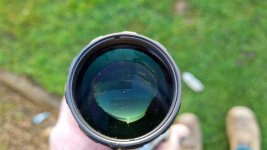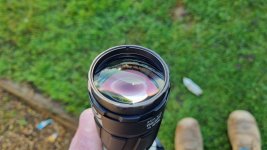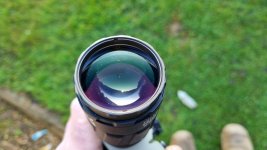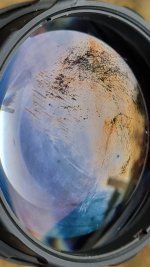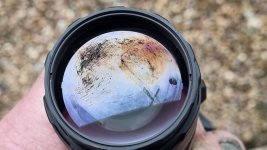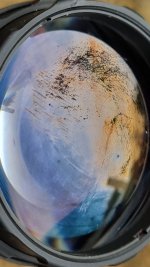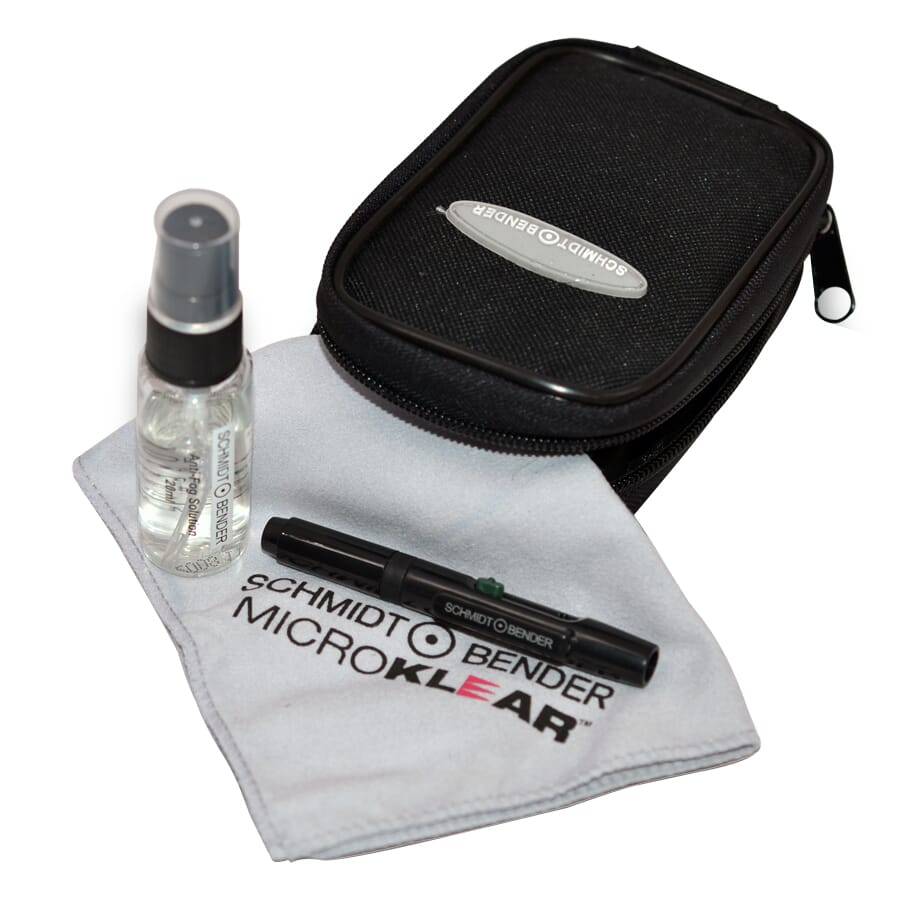Yesterday I shot a match in the rain. It was a wet and muddy soupy mess. When I stripped the gun afterwards I went to clean my lenses which were also a mess. The ocular lens came out fine, but my objective lens is ruined I think? It looks like I wore off some of the coating on the lens.
The scope is a Bushnell XRS3. I used the same SOP I use to clean all my optics: A lens bulb blower, a lens brush, and followed it with a spray solution from Vortex with a microfiber rag also made by Vortex.
Picture below shows what I’m left with now. I don’t want to play with it anymore and plan to call Bushnell tomorrow and see what they say.

The scope is a Bushnell XRS3. I used the same SOP I use to clean all my optics: A lens bulb blower, a lens brush, and followed it with a spray solution from Vortex with a microfiber rag also made by Vortex.
Picture below shows what I’m left with now. I don’t want to play with it anymore and plan to call Bushnell tomorrow and see what they say.

